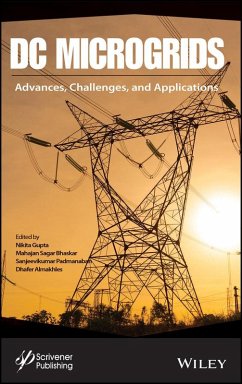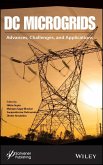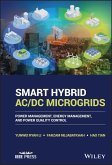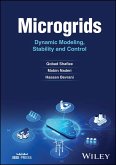DC MICROGRIDS Written and edited by a team of well-known and respected experts in the field, this new volume on DC microgrids presents the state-of-the-art developments and challenges in the field of microgrids for sustainability and scalability for engineers, researchers, academicians, industry professionals, consultants, and designers. The electric grid is on the threshold of a paradigm shift. In the past few years, the picture of the grid has changed dramatically due to the introduction of renewable energy sources, advancements in power electronics, digitalization, and other factors. All these megatrends are pointing toward a new electrical system based on Direct Current (DC). DC power systems have inherent advantages of no harmonics, no reactive power, high efficiency, over the conventional AC power systems. Hence, DC power systems have become an emerging and promising alternative in various emerging applications, which include distributed energy sources like wind, solar and Energy Storage System (ESS), distribution networks, smart buildings, remote telecom systems, and transport electrification like electric vehicles (EVs). All these applications are designed at different voltages to meet their specific requirements individually because of the lack of standardization. Thus, the factors influencing the DC voltages and system operation needed to be surveyed and analyzed, which include voltage standards, architecture for existing and emerging applications, topologies and control strategies of power electronic interfaces, fault diagnosis and design of the protection system, optimal economical operation, and system reliability.
Dieser Download kann aus rechtlichen Gründen nur mit Rechnungsadresse in A, B, BG, CY, CZ, D, DK, EW, E, FIN, F, GR, HR, H, IRL, I, LT, L, LR, M, NL, PL, P, R, S, SLO, SK ausgeliefert werden.









